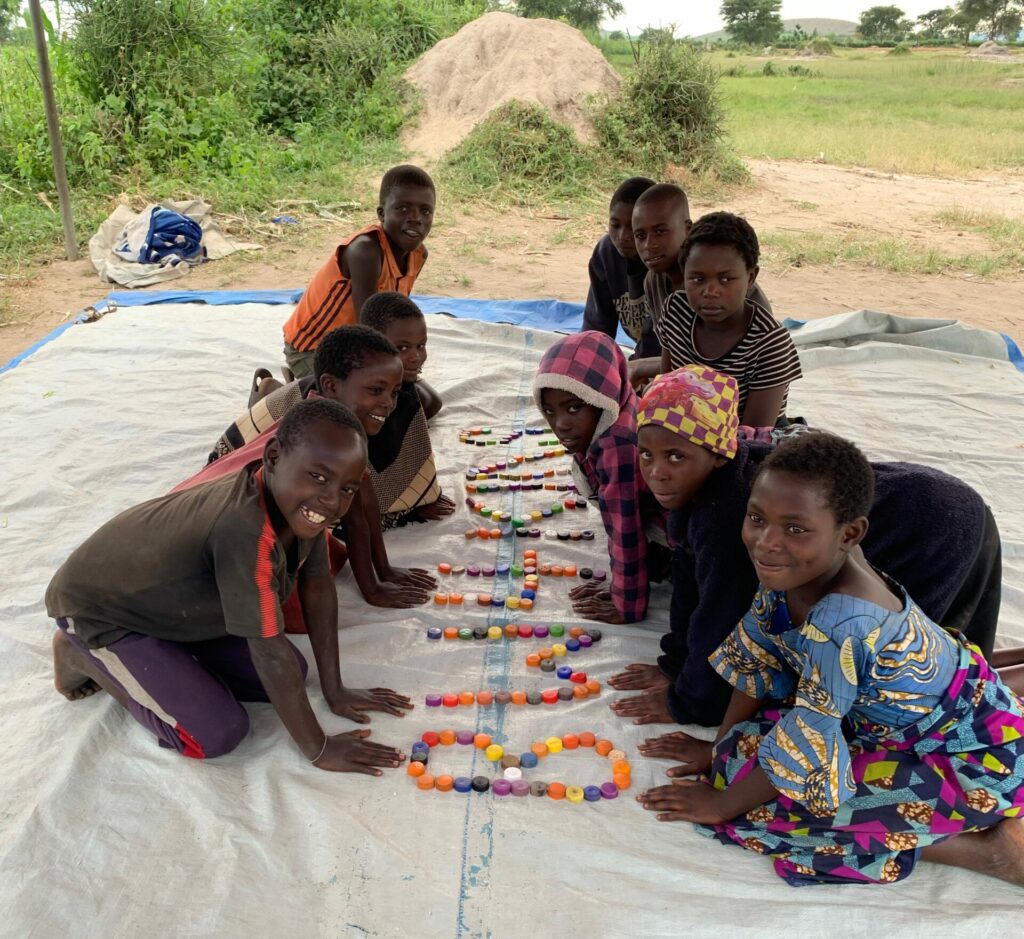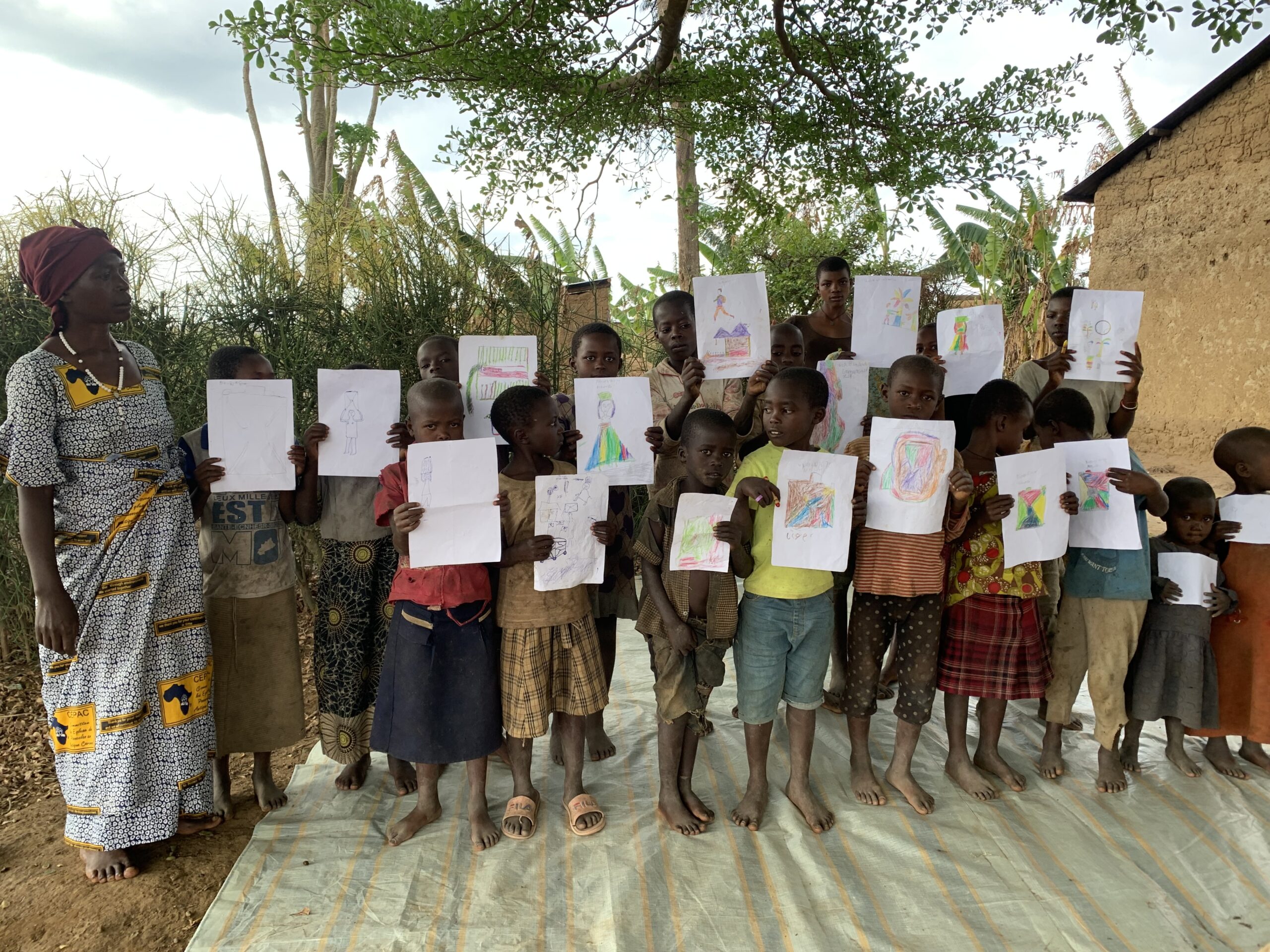
A BETTER WORLD FOR KIDS
Project For Building Life-long Resilience For Vulnerable Children (Aged 6-12) And Elderly In Nakivale Settlement, Uganda
Focusing Initiatives International
Daniel Osako, P.G.Dip – Managing Director
Patricia Omidian, PhD – Program Advisor
Context
Uganda remains the largest refugee-hosting country in Africa with over 1.29 million refugees and asylum seekers, 61% of which are children.
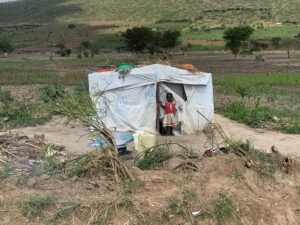 Many of these children have experienced severe traumatic events (including displacement, family separation, death of parents, abuse, neglect, physical violence, sexual and gender-based violence, and patterns of prolonged tension and violence in over-stressed families) that undermine their resilience and natural ability to cope positively with adverse situations.
Many of these children have experienced severe traumatic events (including displacement, family separation, death of parents, abuse, neglect, physical violence, sexual and gender-based violence, and patterns of prolonged tension and violence in over-stressed families) that undermine their resilience and natural ability to cope positively with adverse situations.
Mental health problems affect about one in ten children and young people in Uganda. An assessment conducted in two refugee hosting districts indicated that 68% of refugee children who were suffering from psychosocial distress had not received the mental health care or social interventions that they needed. The report further indicated that the majority of the relationships in which refugee children were involved had violent components. The lack of structured recreational activities and limited educational and social opportunities for children and adolescents in the settlements has left them isolated from their peers, lacking healthy stimulation, and at risk of drug and alcohol abuse. The arrival of Covid-19 significantly impacted the mental health and psychosocial wellbeing of refugees causing symptoms of anxiety and depression to rise dramatically higher than in pre-pandemic Uganda.
Existing development and protection programs for refugees generally focus on older teens and emerging adults. The specific needs of both younger children and the elderly are generally ignored by these programs or assumed to be met by family-based activities..
In many cases, families have had to make the painful choice to abandon their grandparents in order to escape war or other violent situations with their children. Those elderly who have managed to survive abandonment have lost everything – not only their homes and families, but also their former status as wise elders entitled to respect and assured of their importance to their communities.
Even where abandonment is not an issue, the rapid pace of social change has widened the generation gap, eroded traditional support networks, and weakened community values, leaving older refugees unable to experience the same authority, care, and attention that they had in the past.
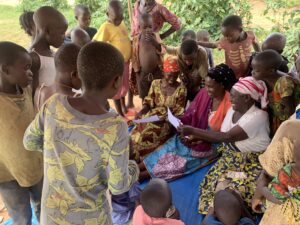 Traditional wisdom is lost when folklore and other essential aspects of community culture are no longer passed from one generation to the next. When elders, who are the main source of this rich heritage, die without passing it on, cultural stability declines in already stressed refugee communities, creating a poor environment for healthy childhood growth and development.
Traditional wisdom is lost when folklore and other essential aspects of community culture are no longer passed from one generation to the next. When elders, who are the main source of this rich heritage, die without passing it on, cultural stability declines in already stressed refugee communities, creating a poor environment for healthy childhood growth and development.
A Better World For Kids was inspired by Daniel Osaka’s personal life experience as a lost child. He proposed this project to fill the gap in services and increase the resilience and psychosocial wellbeing of both elderly refugees and vulnerable children by building cross-generational ties that can enhance both elderly and children’s mental stability and create a sense of normality and social contact that allows children to grow into well-rounded, healthy adults.
Project Goal
To increase the resilience and psychosocial wellbeing of vulnerable refugee children of 6 to 12 years and of under-served elderly in the Nakivale Settlement in Uganda.
Project Objectives
This project seeks to:
- Develop a new psychosocial community wellness model in the Nakivale settlement that grounds the children in their history and culture and gives meaning to the lives of the elderly.
- Improve access to age-appropriate, and inclusive psychosocial services for elderly refugees and vulnerable children in the Nakivale settlement.
- Build the capacity of caregivers to deal with children’s daily stressors, and to identify and refer children in need of psychosocial support services.
- Narrow the existing gap between the elderly and children through play and storytelling and passing on the knowledge reserve and cultural history of their communities.
- Build this program through engagement with the refugee community in an ongoing collaborative process.
Project Activities
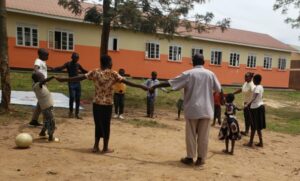 Initial assessment and selection of children (ages 6-12) and 20 elders
Initial assessment and selection of children (ages 6-12) and 20 elders- Pre- and post-testing (children with write and draw, and elders with well-being check)
- Community Awareness Training (including Focusing) will be given for 3 staff, 5-20 elderly, and 150+ children’s caregivers on the psychosocial needs of children and on signs and symptoms of issues requiring intervention services.
- Regular sessions for children with elders including shared meals, play, storytelling, riddles, dialogues, and culturally significant activities such as music and art to foster positive intergenerational relationships and enable the children to gain skills in problem identification, analysis and solving, as well as emotional skills, which are all key to building resilience.
- Referrals will be made for age-appropriate interventions for children with severe psychological distress, and those facing protection issues, gender-based violence (GBV) and other needs.
- Referrals for elders to receive services as appropriate.
- Routine monitoring systems will be put in place and maintained.
Project Consultation and collaborations
- Ongoing community consultations at the beginning and throughout the life of the project to discover the best way forward to assure the program’s responsiveness to the community’s currant needs.
- Coordination will be done with the refugee settlement authorities (Office of the Prime Minister) by reporting on the project outcomes at regular meetings.
- Ongoing collaborations will also be made with UNHCR and its implementing partners in order to create effective linkages and referrals.
- Accountability to project participants will be ensured through regularly scheduled consultative and awareness meetings with the children, the elderly, the children’s caregivers, and community leaders.
